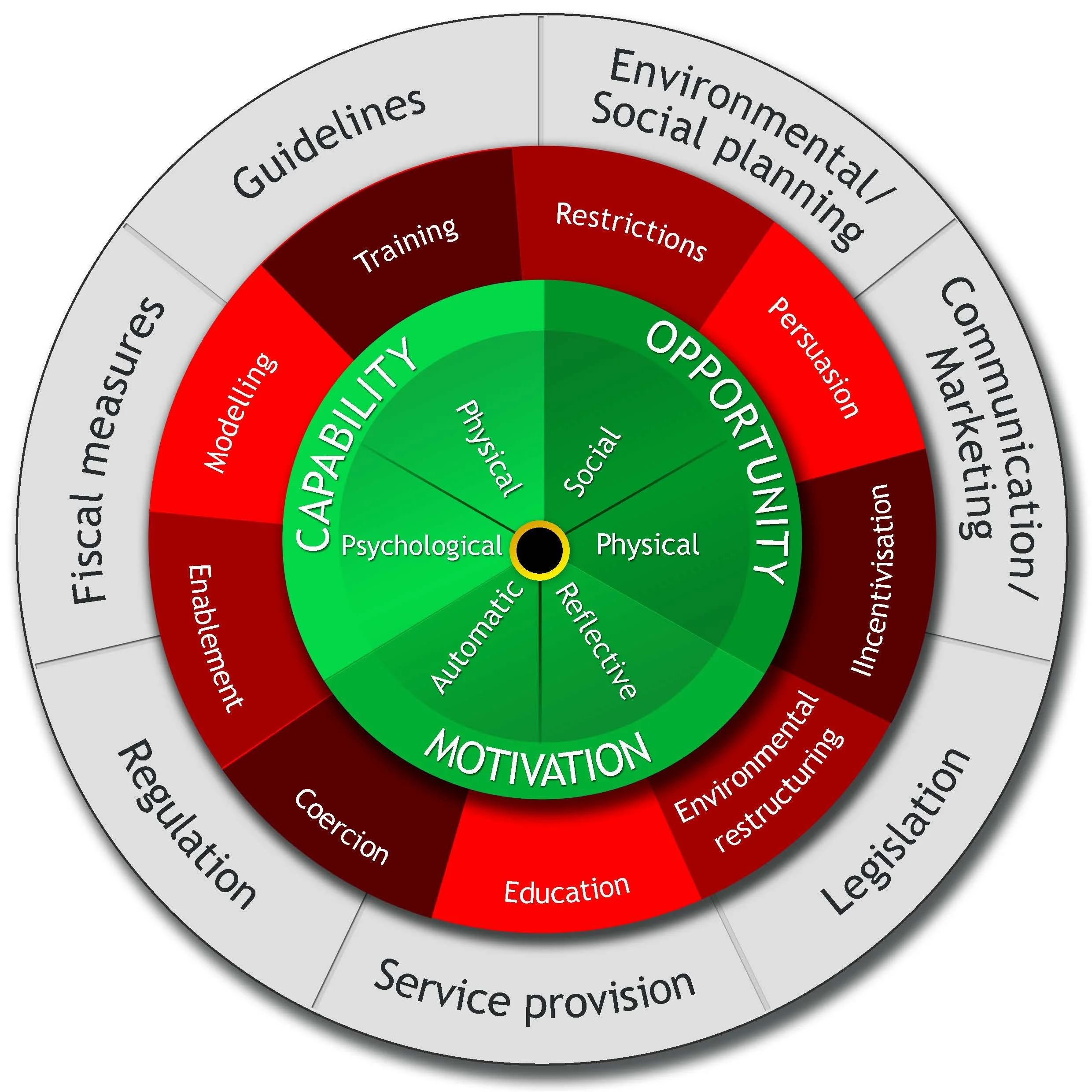The home of the
COM-B Model
‘The COM-B model is a general model for predicting behaviour and developing interventions to influence it. This website is your hub for information about the model and how to use it to analyse and develop behaviour change interventions. Use the contact us link to provide comments on the model or this website and let us know about things you’d like us to add.’
The COM-B model is being updated with COM-B 2.0 expected early in 2026. The updated model is fully compatible with the original model but expands on it, provides additional detail and clarifies it so that it forms a more useful basis for analysing and predicting behaviour and developing interventions. Click here for a preview.
Robert West and Susan Michie (Authors of the COM-B Model)
Resources
View and download papers, reports, slide shows, tools and videos
Training
Access our free online training modules or enquire about bespoke COM-B training
Tools
Use our suite of tools to help analyse and design behaviour change interventions
COM-B and Ontologies
The COM-B Model links to the Mechanism of Actions (MoA) Ontology within the Behaviour Change Intervention Ontology (BCIO). Some COM-B constructs correspond directly with some BCIO constructs, while others link with MoA constructs using relations such as ‘causally influences’.
Ontologies are standardised frameworks for representing constructs including influences on behaviour. Ontologies are increasingly being used in biological, behavioural and social sciences. When referring to COM-B it can be helpful to refer to COM-B constructs using their ontology equivalents.
Using the COM-B Model with the Behaviour Change Wheel
The COM-B model lies at the heart of the Behaviour Change Wheel (BCW) framework for analysing or developing interventions. (See BCW book or brief guides.)
Use the resources and tools in this website to gain insights into these applications.
FAQs
We are continually updating and adding to this list so let us know if you have any questions.
Join Us
Community of Practice - can propose or comment on constructs and mappings
This website is developed by the authors of the COM-B model: Susan Michie and Robert West and is funded in part by the US National Institutes of Health as part of the Human Behaviour Change Project / APRICOT Project.
If you have any comments on the website please contact us.






